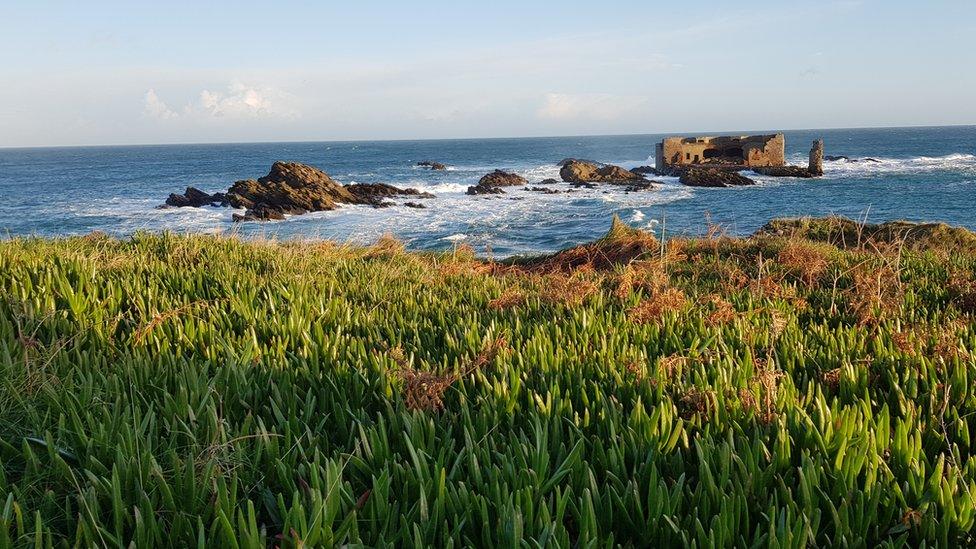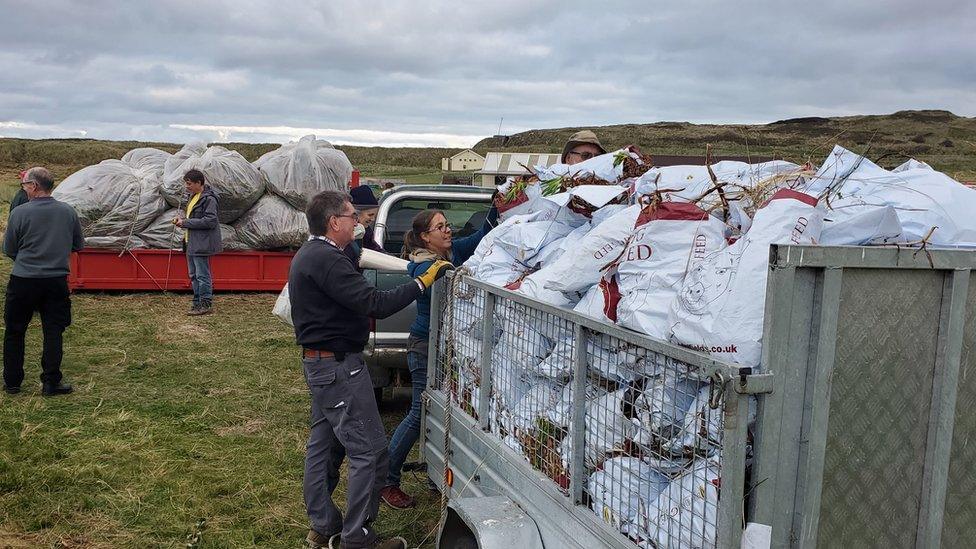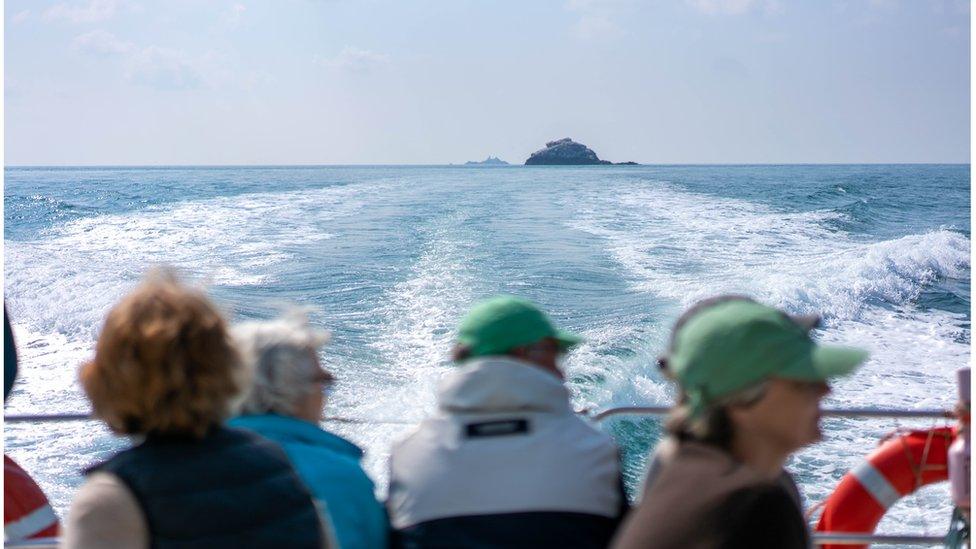Sour fig plant in Alderney causing 'environmental emergency'
- Published

Sour Fig, an invasive plant, has taken over large sections of Alderney's coasltline
An invasive plant is causing an "environmental emergency" in the Channel Islands, a wildlife charity has said.
Alderney Wildlife Trust said the sour fig was threatening sand dunes on the island.
Between three and four metric tonnes of the plant was removed from the dunes at Saye on Saturday - the largest amount removed in a single day, it added.
The plant prevents many other species, including wildflowers, from growing.
Sour fig, a non-native plant from South Africa, was first introduced to the island in the 1950s.

Volunteers removed between three to four tonnes of the plant on Saturday
The UK Government has made it illegal to plant or contribute to its growth.
Alderney Wildlife Trust wants to see a similar rule brought in on the island.
It said: "It is hoped that it will eventually be recognised by the States as an environmental emergency and a more permanent solution can be agreed upon before it is too late."
Boyd Kelly, Alderney's General Services Committee chairman, said he had asked the Alderney Wildlife Trust to present a report with recommendations to him and his colleagues on the matter.
Chief executive Roland Gauvain said: "This one species of plant, introduced only 70 years ago, is spreading exponentially and as we see global heating reduce the number of frosts many such non-native species have the opportunity to damage our rich local wildlife."
About 30 people, including members of Guernsey Conservation Volunteers, took part in the removal.

Follow BBC Guernsey on Twitter, external and Facebook, external. Send your story ideas to channel.islands@bbc.co.uk, external.
Related topics
- Published21 May 2021
